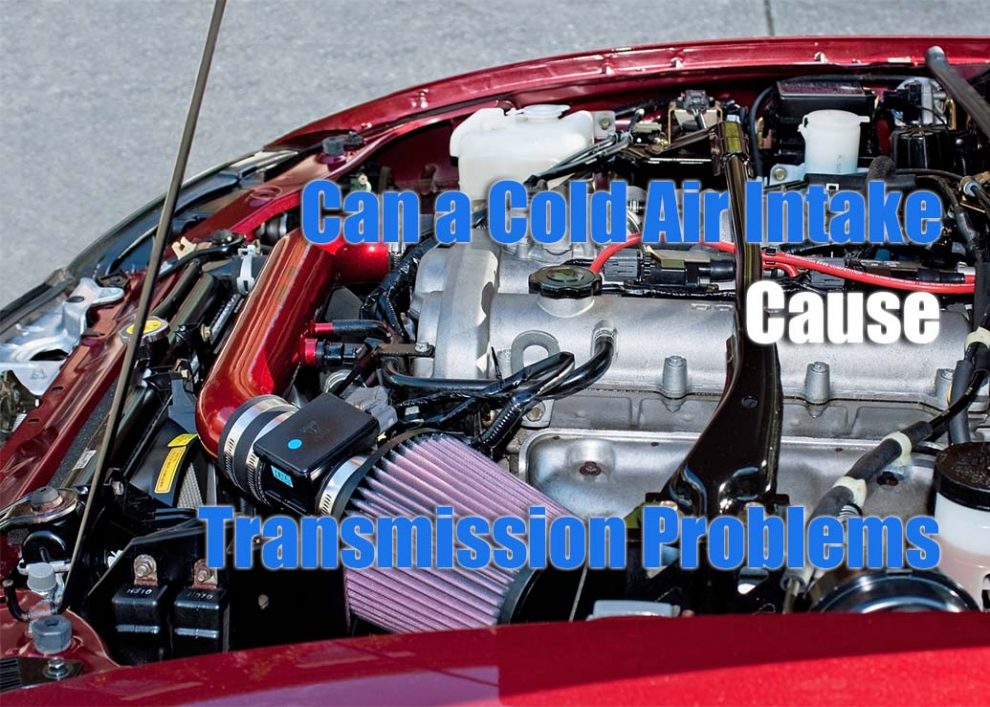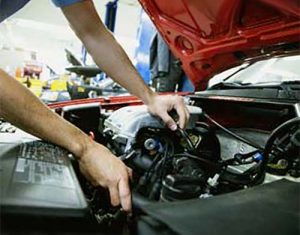Your car’s engine requires the correct mix of air and fuel to complete its combustion cycle. A cold air intake is an aftermarket part that draws cooler, denser air from outside the engine compartment rather than hotter, less dense air from inside the engine bay. While this system can improve performance in certain vehicles, it could also cause transmission issues if not installed correctly or used with certain types of transmissions. In this article we’ll discuss how a cold air intake affects your vehicle’s transmission and provide tips for preventing damage caused by improper installation or use. Let’s dive in!
Does a Cold Air Intake Cause Transmission Problems?
The short answer is yes, in some cases using a cold air intake could have an impact on your vehicle’s transmission. If not installed correctly or used with certain types of transmissions, a cold air intake could cause the transmission to overheat or shift erratically. This is due to the increased air pressure created by the cold air intake, which can reduce the amount of oil flow and cooling to your transmission. The type of vehicle you drive, its transmission type, and other factors all affect whether a cold air intake could cause issues with your vehicle’s transmission.
Factors That Affect Whether a Cold Air Intake Could Cause Transmission Problems
The following variables can determine whether using a cold air intake could have an impact on your car’s transmission:
-
Vehicle Type: Different types of vehicles are engineered differently and use varying types of transmissions. Manual transmissions are typically more susceptible to damage caused by cold air intakes than automatic transmissions, since they rely on fluid pressure for gear selection and engagement. Some cars may also have additional components such as turbochargers or superchargers that would require extra care when installing a cold air intake system.
-
 Installation Quality: Proper installation is key when it comes to preventing problems caused by a cold air intake system. If it’s not installed correctly or there are leaks in the tubing connecting the filter to the engine, it can allow more air to enter than intended, which can cause issues with your transmission.
Installation Quality: Proper installation is key when it comes to preventing problems caused by a cold air intake system. If it’s not installed correctly or there are leaks in the tubing connecting the filter to the engine, it can allow more air to enter than intended, which can cause issues with your transmission. -
Maintenance and Care: Regular maintenance and care is also important when it comes to preventing transmission damage caused by a cold air intake system. When inspecting the cold air intake system, look for any leaks in the tubing or any signs of wear and tear on the filter itself. Also be sure to check your engine oil level regularly and replace it on schedule, as this will help ensure that there is enough lubrication for your transmission.
Tips for Preventing Transmission Damage Caused by a Cold Air Intake
To prevent damage caused by a cold air intake, follow these tips:
-
Only install aftermarket parts from reputable manufacturers that are specifically designed for your vehicle’s make and model.
-
Have an experienced mechanic install the system correctly to ensure there are no leaks in the tubing or other components of the system.
-
Check your engine oil level regularly and replace it on schedule; this will help ensure there is enough lubrication for your transmission.
-
If you have a manual transmission, upgrade to an aftermarket clutch with higher torque capacity if needed, as this will help reduce strain on the transmission when using a cold air intake system.
Conclusion
Using a cold air intake system can improve your vehicle’s performance and efficiency, but it can also cause damage to your transmission if not installed correctly or used with certain types of transmissions. To avoid problems caused by a cold air intake, only use aftermarket parts from reputable manufacturers that are designed for your vehicle’s make and model, have an experienced mechanic install the system correctly, check the engine oil level regularly and replace it on schedule, and upgrade to an aftermarket clutch with higher torque capacity if needed.


 Installation Quality: Proper installation is key when it comes to preventing problems caused by a cold air intake system. If it’s not installed correctly or there are leaks in the tubing connecting the filter to the engine, it can allow more air to enter than intended, which can cause issues with your transmission.
Installation Quality: Proper installation is key when it comes to preventing problems caused by a cold air intake system. If it’s not installed correctly or there are leaks in the tubing connecting the filter to the engine, it can allow more air to enter than intended, which can cause issues with your transmission.
Add Comment